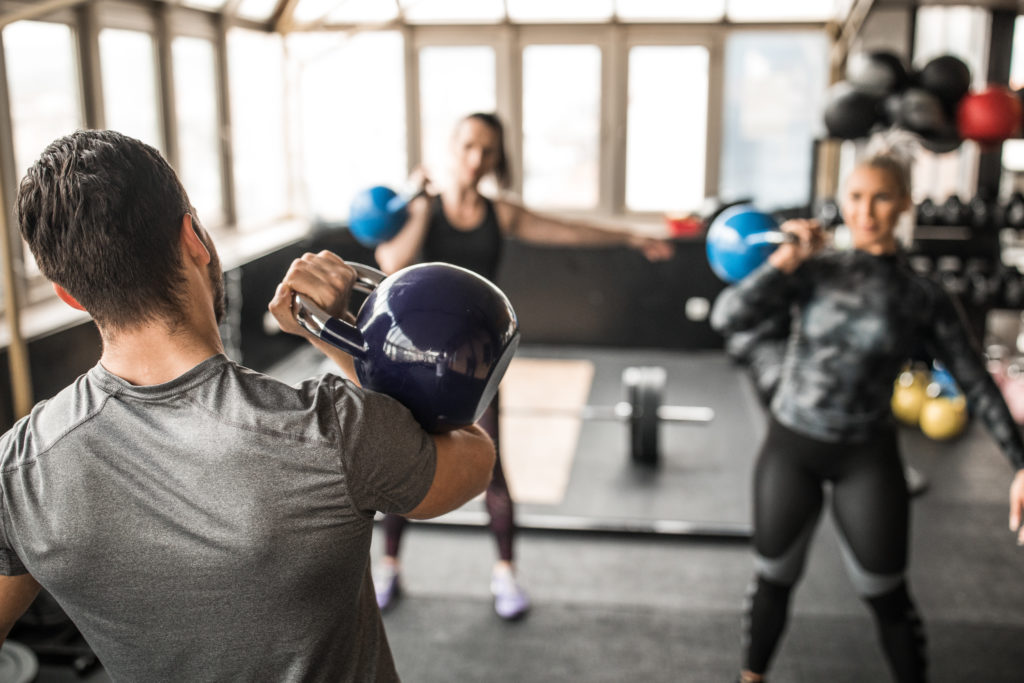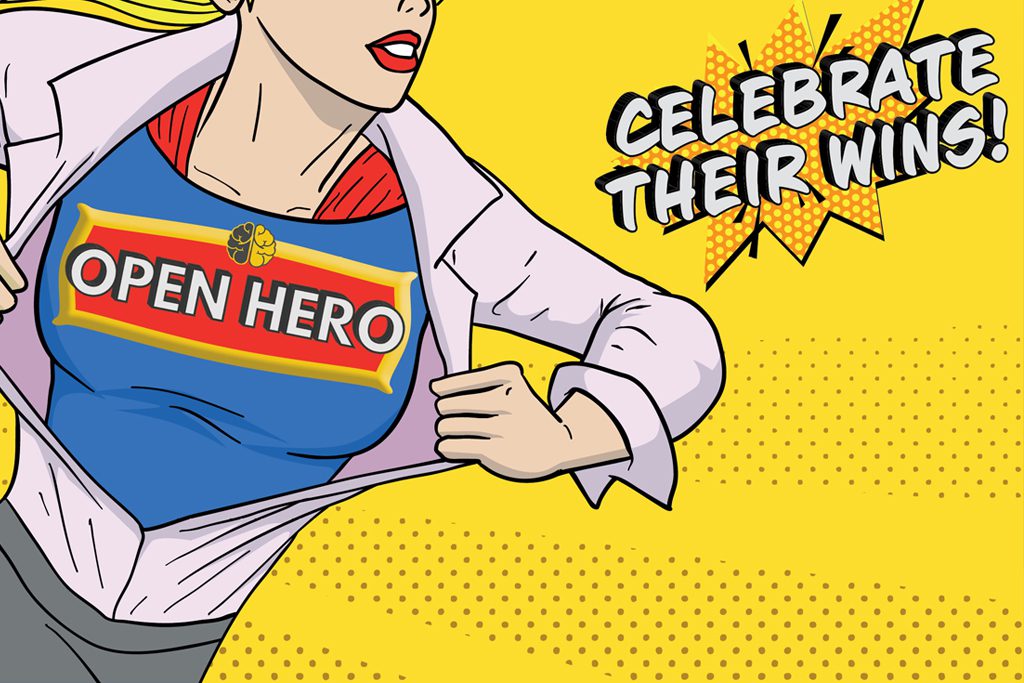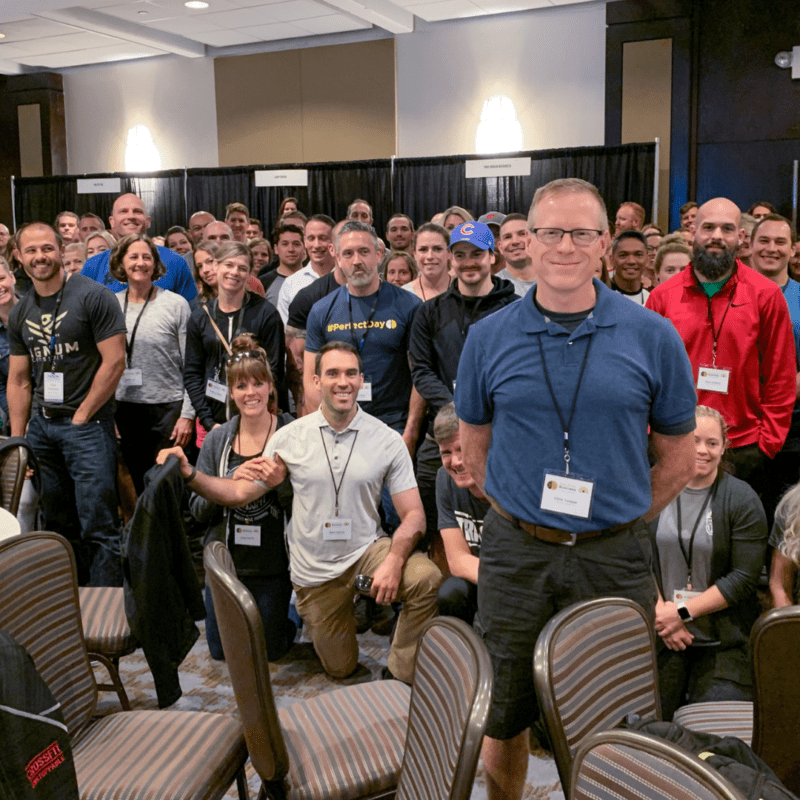If you want to run an Intramural Open to capitalize on the excitement of the CrossFit Open, we’ll tell you exactly how to do it.
Below, you’ll learn how to use the Open to celebrate your members and generate revenue, and we’ll also tell you how to coach, program and advise your clients on nutrition.
Read on to see how hundreds of gyms around the world have used Chris Cooper’s Intramural Open plan to make the most of CrossFit HQ’s signature event: the annual CrossFit Games Open.
Read this first:
The Intramural Open, this guide and its contents are the copyrighted intellectual property of Two-Brain Business. You may republish blog posts and videos, where indicated, with a link back to Twobrainbusiness.com and a credit like this: *Credit for the Intramural Open to Two-Brain Business.
This guide was written to help gym owners, period. To anyone trying to sell a product or service using the contents of this guide or copying parts to mass-publish on websites or sell to other gym owners—stop. This is not for you.
Our legal team works hard to make sure we can keep producing free stuff to help gym owners, and we won’t let anyone profit at their expense.
Note: All images depict pre-pandemic conditions. Please research all local COVID-19 regulations that might affect your Intramural Open plan.
To download the PDF version of this guide, click here.
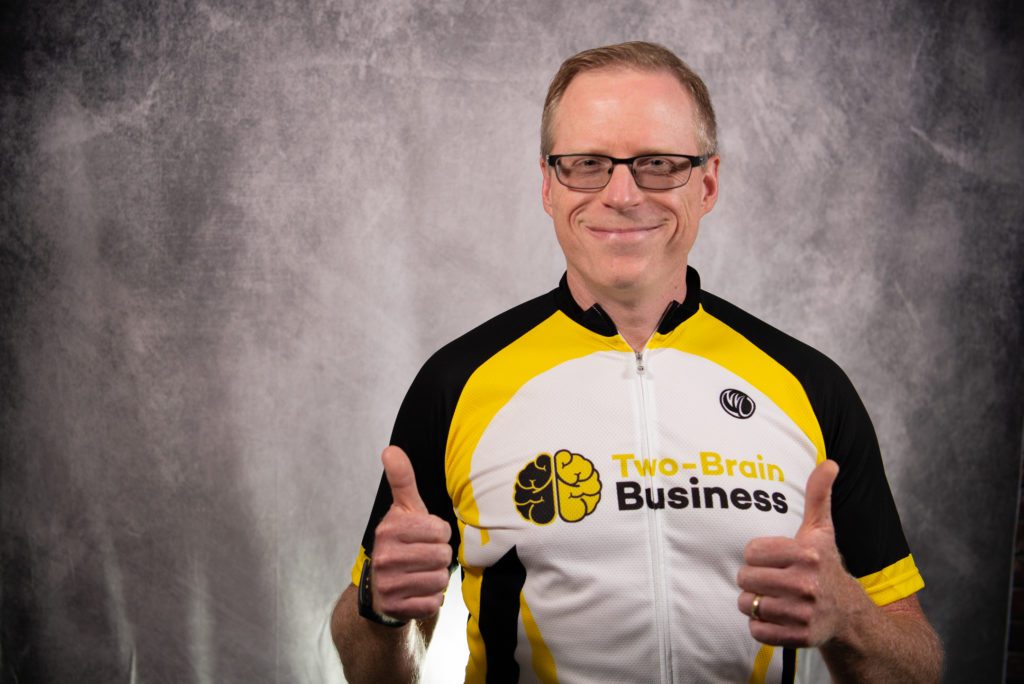
A Note From Chris Cooper
It’s a season of hope.
The CrossFit Open is the largest participatory sporting movement in the world. It’s always been a good way for clients to see their progress, compete and find wins—on and off the official leaderboard. But in 2021 it’s even more important.
Since 2012, we’ve been doing the Intramural Open at my gym, Catalyst. In 2013, I started publishing an “Intramural Open Guide” to help other gym owners add more camaraderie and turn the Open into a real benefit for the business, too. Even though the Intramural Open is a spin on CrossFit’s event, CrossFit gyms have embraced the intramural flavor to make the competition something more.
Putting clients on podiums, inviting their cheering squads, adding bonuses and extra celebrations and a party atmosphere—these have always been wins. But this year, the Open will have an extra benefit: More than ever, a client doesn’t have to win an event to win. In 2021, normalcy is a huge win.
“Back to normal” is the overarching goal for many of your clients right now. “Back in shape” is the big, new goal for many of your future clients. And “back to my happy place” is the goal of many of your former clients.
That makes the Intramural Open a more powerful tool than ever before. No other single event has the same power to retain your current clients, recapture your former clients and inspire your new clients.
To that end, I think it’s important to stick with a five-week format. The scoring, prizes, and team points—even the draft—in this e-book will refer to a five-week model (with an optional sixth week). Even though the CrossFit Open is only three weeks long in 2021, you have the opportunity to add even more local flavor to the Open. Add two local “Hero WODs,” host a family event or take it outdoors in a pickup basketball game—whatever will work best for you and your members as you operate according to local restrictions as the COVID Crisis continues.
More than ever, it’s important for you to build your own local media platform, and the Intramural Open can do for you what the CrossFit Games did for CrossFit.
In this guide, you’ll find strategies to run the Intramural Open. And, as in every past issue, you’ll find ways to:
- Boost retention with your current clients through a draft, team names and “spirit of the open” points.
- Increase your value to your current clients by offering “Open prep” specialty courses (for those who want them).
- Expand your influence by inviting your clients’ families and friends to cheer them on.
- Generate a ton of media as you tell your clients’ stories, share pictures of them winning and have them amplify their wins on their own platforms.
But this year, we’ve gone further. I’ve asked our partners to share things that will help you, too. So you’re also going to read:
- How Wodify Rise and Arena can generate more engagement while cutting down on admin time.
- How to program a prep course for your clients who want more—with sample programming—from Vincent Camps at Two-Brain Programming.
- How to coach athletes more effectively, from Josh Martin at Two-Brain Coaching.
- How to create and price a hybrid specialty group/PT program, from Brooks DiFiore at Two-Brain Programming.
- How to create and price a how-to-eat-for-the-Open nutrition seminar that can lead to ongoing nutrition services, from Jen Broxterman of Two-Brain Coaching and NutritionRx.
- How to generate and use good media to put your clients in a spotlight, from Mike Warkentin at Two-Brain Media.
- How to translate the uptick in Google searches for “CrossFit” into new business, from John Franklin at Gym Lead Machine.
It’s a big year. “Back to normal” feels like a huge win. And wins create opportunities to celebrate. Let’s celebrate our community of movement together.
Coop
SECTION 1—THE BASICS
If this is your first time running the Intramural Open, the Basics section is just for you. We’ll explain what the Intramural Open is all about and tell you exactly how to run it.
OVERVIEW
It all starts by selecting your best members as team captains—think personality, not skill. These team captains will then fill their teams with other members of your gym by both drafting and recruiting them.
Once the Intramural Open begins, your members earn points for their teams by completing workouts, showing spirit and placing in the top three inside your gym. At the very end, the team with the most points wins!

Timeline
We’re often asked about timelines for running the Intramural Open. While there is plenty of flexibility in how you can run it, this schedule will keep you on track in 2021.
| Advertise the Intramural Open | Now-March 15 |
| Select and set up scoring system | Feb. 10 |
| Registration | Feb. 10-March 15 |
| Select team captains | Feb. 10 |
| Draft day | Feb. 17 |
| Recruiting period | Feb. 24-March 15 |
| Workout: CrossFit Games 21.1 | March 11 |
| Workout: CrossFit Games 21.2 | March 18 |
| Workout: CrossFit Games 21.3 | March 25 |
| Workout 4 | April 1 |
| Workout 5 | April 8 |
| Event 6 | April 15 |
| Launch post-Open programs: | May 1 |
Set-Up Activities
Before you open registration to your members, complete a few setup activities. They won’t take long, and getting them out of the way will ensure you succeed down the road.
Step 1: Set Up Your Pricing
The Intramural Open is always the best event of the year at many gyms, but it’s a lot of work. We highly recommend you charge members at least the same amount as they pay to register for the regular Open: $20.
In February 2019, we actually witnessed a shift: members only signing up for the Intramural Open and not the standard one. It’s your choice how your gym handles that, but at the very least, charge what’s fair for your time and service.
Step 2: Select Your Captains
The right captains will make or break your Intramural Open. Captains shouldn’t be the top athletes in your gym but rather the members you would describe as “most fun.” We recommend having at least three to four teams, so you’ll want at least three or four captains.
Step 3: Set Up Your Competition on Wodify
Want to take the Intramural Open to the next level? Use Wodify Rise and Wodify Arena to increase engagement, reduce admin setup time and give your clients an even better experience.
With Wodify Rise, you can create a digital challenge for the length of the Intramural Open that will give clients an easy way to track their points and see how others are doing. Create tasks such as completing WODs, finishing on top and earning Spirit of the Open points. Then add other custom challenges participants can complete to earn points.
Wodify Arena gives you a seamless way to track each individual performance during the WODs. With a real-time leaderboard, everyone can follow the action as you wait to see which athletes finish in the top three. For each workout, create an Arena “competition” and send a link to your participants to register for free (if you already charged them to participate in the Intramural Open).
Both of these tools are free for organizers, even if you are not using Wodify to run your gym. Just pass on a small fee to your participants if you are selling tickets.
Bonus: Running a skills seminar (see below) before the Intramural Open? Use Wodify Live to quickly and easily create one-off events.
Pre-Open Activities
Although the first workout will be announced March 11, the magic around the Intramural Open starts well before that date.
Step 1: Create Divisions
We’ll get to scoring rules later, but divisions come into play because the top three in each division win extra points. We recommend setting up at least Men’s and Women’s divisions. If you have enough members to support it, Men’s Masters and Women’s Masters work really well, too. You can set the age cutoff wherever it makes sense for your gym.
We’ve seen some gyms try a scaled division, but it doesn’t typically work out well because lower-level Rx athletes inevitably drop down to take the top three spots in the scaled division.
Step 2: Open Registration
The Intramural Open should take over your gym, and it all starts with getting as many members registered as possible. Note: It’s important that they register with you and not just on Games.CrossFit.com if they choose to do the standard Open.
If you are using Wodify, you can have participants register for your Intramural Open on those platforms, passing Wodify’s fees on to your clients. If you aren’t using Wodify, we recommend manual registration on a whiteboard so members can see who signs up. Group mentality works and will encourage others to participate! Even if you are using Wodify, listing names on a whiteboard is a great idea.
Step 3: Draft Day
Think of draft day as the kickoff event of your Intramural Open. There are several ways you can do it, but here are the basics:
- Each captain chooses a team name.
- Create four Facebook groups: one for each team, with you (the gym owner) and each captain as an “admin” for each group. Create a fifth group for you and the captains only so you can get messages to captains and teams quickly. Note: These aren’t your official affiliate teams. You could still be on the official gym team on the CrossFit leaderboard and the Kipping It Real squad for the internal Intramural Open. There’s no need to build the teams on the Games site.
- Divide your “serious” competitors between the teams with a draft.
In some drafts, captains are presented with a list of athletes already registered for the Open on draft day. Each is allowed to “protect” two athletes—mostly spouses or best friends—for their team. The rest are thrown into a hat. Draft order is determined each round by randomization (e.g. 1-2-3-4, 4-2-1-3, 2-1-4-3, etc.). In some gyms, captains draw names randomly; in others, they choose their athletes from the list of preregistered Open athletes. It’s up to you. If the draft isn’t done by random choice, we recommend keeping the order of the draft secret so no one is the “last one picked.”
We still love doing the draft on a whiteboard for a nice visual, but you can also use digital platforms to assign people to teams.
Peak Moment Opportunity: Stream the draft on Facebook Live. Share the feed in your private members group or on your personal page. If the draft is completely random, show everything. If you are drafting based on talent, draw your competitors’ names publicly and turn off the cameras when it comes time to draft your other clients.
Step 4: Recruitment Period
Not everyone will sign up before the draft, and that’s OK because now it’s recruitment time!
Immediately after the draft, the rest of your gym membership is open for recruitment. Captains can bribe, coerce or otherwise attempt to sign up any member for their teams. Keep track of sign-ups as they happen. We recommend captains show off their new additions by posting in the gym’s Facebook group as well.
Remind your clients that your goal is to provide fun, collaborative competition.
Click here to see how the Intramural Open was presented on the Catalyst site in 2019. Copy the post if you like—just link back to the Catalyst Gym site from whence it came.
Because scoring usually favors the largest team, it’s a good idea to set a recruitment limit to keep things even. Any team can recruit up to 25 members but must then wait for other teams to recruit 25 members before recruiting more.
Expect more people to sign up for the Open because they’re asked by the captains; this is the whole point of the Intramural Open. At Catalyst one year, captains had 22 people signed up before the draft and hit 60 before 6 a.m. the next day.
Peak Moment Opportunity: Have members post “I’m drafted! #GymNameOpen2021” on social media. Even better, have each drafted member sign a “contract” to play for his or her team, and then take a picture of the member holding it on draft day.
For example: Create a certificate that says “DRAFTED!” and email it to the client after she agrees to be on the Flying Monkeys 2021 team. She takes a selfie to confirm she’s a member of the Flying Monkeys and posts it on Instagram and Facebook. We’ve also seen gyms create “trading cards” for drafted clients and interview them like they’re superstars who just signed multi-million-dollar contracts.
To encourage other members to sign up, drafted clients can also nominate people in the gym.
For example: “I’ve been DRAFTED! I’ll be a proud member of the Flying Monkeys in 2021! I nominate Richard Simmons to sign up! #CatalystOpen2021 #crossfitopen.”
Pre-Open Programming
By Vincent Camps, Two-Brain Programming
The 2021 CrossFit Games Open is fast approaching, and this year there are a few significant changes to the format. Here’s everything you need to know to prepare clients.
What we know as of the publication of this guide: The Open will only run for three weeks (March 11-28) and will have “flexible options” for members who are still not back at gyms due to health concerns or facility closures.
CrossFit has promised equipment-free options and provided a list of all the equipment needed for the 2021 Open if one chooses to compete with gear. Although it’s nearly impossible to predict what each workout will look like, we know we won’t be seeing some old favorites like rowing, wall balls or ring muscle-ups.
- A dumbbell (loads TBA; assume 50/35 lb., 35/20 lb.).
- A barbell and plates (loads TBA).
- A plyo box.
- A jump rope.
- A pull-up location.
So what does all this mean for you and your gym? How do you make sure that your athletes are peaking and your programming is dialed in to benefit your members?
As long as an athlete at your gym has been attending classes regularly, four to six weeks provide plenty of time to get your athletes ready. Here are some factors to consider when programming in advance of the Open.
- About four weeks out, start programming weeks to reflect the competition period during the Open:
- Monday-Wednesday: strength/higher intensity.
- Thursday: active recovery.
- Friday: Open re-test WOD.
- Saturday and Sunday: Light/moderate intensity.
- A few movements have been programmed in the Open each year. Here are the top four your clients should be seeing once per week both in skill-development sessions and workouts:
- Thrusters.
- Toes-to-bars.
- Double-unders.
- Gymnastics pulls (pull-ups, chest-to-bar pull-ups, muscle-ups).
Other movements likely to come up have been seen in all but one or two Opens: snatches, burpees, deadlifts and cleans. For these movements, the focus should be on the technical side of cycling light/moderate snatches, cleans and deadlifts. You’ll also want to ensure people can string pull-ups together quickly. Generally, many members struggle with these techniques or the concept of cycling high-volume reps.
- The two most common WOD schemes you can expect are couplets and triplets. That means, when choosing Open workouts to repeat, you should look for combinations of the movements listed above: Workouts like 12.3, 14.1, 14.3, 16.2, 16.3, 17.1, 18.5, 19.5 and 20.4 are great places to start.
- You need to have a plan for beginner, intermediate and advanced athletes in your skill-development sessions. If your program includes muscle-up skill work, a newer athlete who is still learning to kip and can’t do a pull-up might become discouraged. Instead, make sure every skill session has a few options for your coaches to help members of all levels. Here is a great example:
Gymnastics Pulling Progression EMOM
Option 1
Minutes 1,2: 10 small, tight kip swings
Minutes 3,4: 8 big kip swings (tight lats, pushing down on the bar)
Minutes 5,6: 5 kip swings with hip pop (still focusing on tight lats, straight arms)
Minutes 7,8: 5 jumping bar muscle-ups
Minutes 9,10: Bar muscle-up attempts
Option 2
Minutes 1,2,3: 10 small, tight kip swings
Minutes 4,5,6: 8 big kip swings (tight lats, pushing down on the bar)
Minutes 7,8: 5 kip swings with knees to chest (working on transferring momentum)
Minutes 9,10: 5 jumping negative pull-ups or 5 banded strict pull-ups
Above all, you must make the month leading up to the Intramural Open as fun as possible. Getting members into the spirit of the event, helping them develop new skills and familiarizing them with the movements they can expect to see are the most important things you can do when programming.
Beyond this, gym owners and coaches have huge opportunities to run specialty courses that can help members acquire new skills and create income for the gym and its coaches. For instructions and a sample four-week gymnastics course, see Section 2: Generating Revenue below.
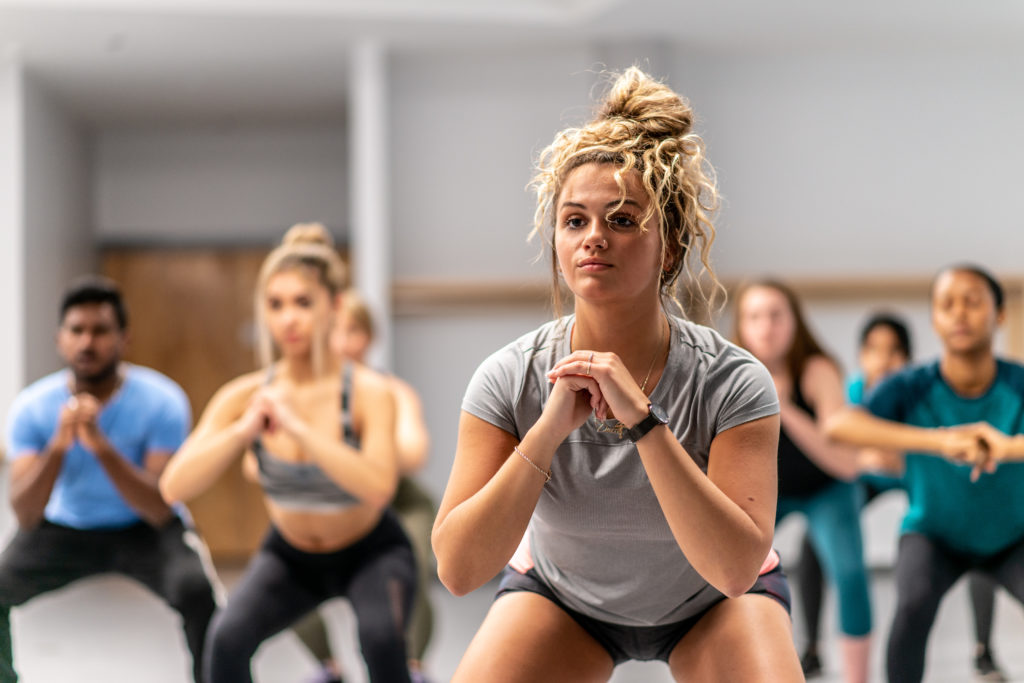
The Open
Registrations are in, teams are chosen and it’s time for the Intramural Open to begin. Now we use our points system, events and prizes to keep the energy alive!
Points and Scoring
The Intramural Open is built to increase participation and fun. Scoring reflects that.
- Teams are given 1 point for every athlete who completes an Open workout.
- Teams are given 3 points for every athlete who finishes among the top 3 women or top 3 men in each division.
- Teams are given 5 points if they win the Spirit of the Open award on any given week (we’ll talk about this later).
In our section on generating revenue, you’ll learn about the true power of points. Feel free to tweak the numbers, but these point values work well to start.
Events
At the bare minimum, we recommend an Announcement Party for the first workout.
- Really amp up the excitement as the first workout is released. Then have some members throw down right away. Play loud music and have some beverages. Even better, stream it all on Facebook!
- Encourage teams to celebrate their spirit with shirts, noisemakers, etc.
- Points are awarded to encourage participation and fun. Many gyms continue to hold weekly events such as Friday Night Lights. Because you already know how to run a group, we won’t explain how to promote the actual workouts. But make it loud and make sure your gym is spectator friendly—if only temporarily.
We’ve found that five Fridays in a row can be taxing on both members and staff, so change it up. Have a live announcement event one week, a Sunday Funday the next (WOD then brunch), and a Suffer on Saturday the next.
Change it up as you see fit, but keep it fun and don’t overtax your staff.
COVID-19 Considerations: Be sure to follow all local health and safety protocols while you have fun. In 2021, it’s unwise to show off—or allow—hugs and high fives if local social-distancing regulations are in place, and capacity and spacing restrictions should be respected. In some areas, you might not be able to have the large groups of previous years, and you might have to space out heats to adhere to regulations. But that doesn’t mean you can’t have a good time. Be creative and positive as you adhere to local laws and your members will still have fun. See the Elevate Your Clients section later in this guide for some ways to keep energy high even if the COVID Crisis forces you to make some changes to your plan.
Coaching During the Intramural Open
By Josh Martin, Two-Brain Coaching
I’m going to tell you exactly how to effectively coach your clients through the Intramural Open. If you follow the eight steps below, you’ll show your clients what world-class coaching looks like and you’ll increase retention.
Step 1
Tell them what it is and what it is not.
The Intramural Open is an opportunity to assess their fitness capabilities in a fun, slightly different environment than they are used to. For five weeks, you will provide space and time for them to do workouts alongside their best friends. It is not a reason to be scared, put pressure on themselves or have an anxiety attack. Nor should a workout score affect their self-esteem. These are just workouts.
Step 2
Show them how prepared they actually are for this challenge.
Highlight elements of your programming that have helped them progress so they gain confidence in themselves. This year will be the 11th iteration of the CrossFit Games Open, so we actually know quite a bit about what to expect—the movements they can and cannot test, expectations of skill separators, time frames, etc. Look back at past Open workouts to pull out trends and connect the dots to your programming. The better you can do this, the more trust you will build.
Step 3
Tell them how to approach “game day.”
It’s not about training more but about giving your body the proper rest and nourishment it needs. I recommend breaking down an ideal week of training given what you know about your clients: When should they come in, how hard should they push, what should they eat?
This is a great opportunity to emphasize the importance of the second M of Two-Brain’s sleep, eat, move and manage (SEMM) model: managing stress. We know people put even more pressure on themselves during the Open, so it’s important to rein in their enthusiasm about extra training.
Step 4
Use the Intramural Open as a fun rallying event.
Highlight how much emphasis is placed on fun and camaraderie over workout placings. Share stories of years past. Have prior Open participants do the same. Celebrate your clients and put them on podiums (see Section 4, below).
Step 5
Make it personal.
Work with each client individually to set specific goals for each workout. This should be done in a way that challenges them slightly so they still leave feeling positive about each experience. This also requires honesty on your part: If Tommy can’t do a single pull-up, don’t use a muscle-up as a goal.
Step 6
Celebrate Bright Spots.
Do a “workout debrief” with each client and help them find as many wins as possible. Then, encourage a community sharing of these Bright Spots in your private members Facebook group after each workout. Highlight them on social media. Also, identify one or two areas where they would like to improve in the coming year. At this point, you should be taking notes on each client. We’ll use it in the next step!
Step 7
Book goal reviews with each client individually.
Do this about one or two weeks after the final workout. We want to capitalize on the excitement of the Open. Come well prepared with the notes you made in the previous step.
In each meeting, share your favorite win that the client had. Ask, “What was your favorite moment?” and, “What is one thing that you’d like to improve on?” Write a plan to help the client get there. This might be adding in nutrition coaching and a few PT sessions, it might be just one of those options, or it might be providing accountability so they use their membership to the fullest. We call this good-better-best: One option is a premium add-on, one option is a small add-on, and the third option is free.
Step 8
Share this entire coaching plan with your clients.
Write out the above seven steps, create a cool infographic and share it with your clients. Nerves during the Open are normal. This is the body’s stress response operating as it should. As coaches, our job is to help our clients manage their stress and maximize their fun. Showing them your plan takes care of a large majority of these nerves.
That’s it! Eight steps to effectively coach your clients through the Intramural Open.
You’re a coach. You carry the torch of a leader. Carry it proudly and professionally. 3, 2, 1 … go!
The Sixth WOD
We always add a sixth event to level out the scoring.
Event 6 can be anything you want. You could use dodgeball, a Zwift team race, a giant marathon row or flip cup.
In 2019, Event 6 at Catalyst was an escape room, and members of the Two-Brain family got our full Escape Room Plan, with a list of clues and materials they could buy cheap. If you don’t have a plan, you can buy inexpensive escape room kits online.
Catalyst has also done a biathlon: Teams get one rower and a Nerf gun. Each person on the team rows 250 m, then picks up a “rifle” and shoots at homemade targets. You could use your wall-ball targets or pie plates strung across the gym instead. A shooter rows, then fires at five targets. For every target the athlete misses, he or she does five burpees before the next rower starts. The winner is the first team to 10,000 m.
Finally, you could set up a “ninja course” and rank teams by their total time to complete.
Your creativity is your limit, and Event 6 is often the highlight of the Intramural Open.
Prizes
At Catalyst, the “grand prize” is a week of lunches for the winning team. But you can arrange anything. We’ve found social events to work best.
Hang a banner in the gym with team members’ names on it. Forever Fierce can print them for you.
Section 2—Generating Revenue
The Intramural Open isn’t just about building up your members. It’s about building up your business. This happens before the competition even begins!
Before-the-Open Skill Work
During the Intramural Open, your members care more about a thruster, snatch and pull-up than at any other time in the year. In fact, their ability/inability to do them becomes an emotional experience. That is your opportunity to help them in the weeks leading up to the event.
Each year, Catalyst runs a six-week Olympic-lifting course that sells out in less than 48 hours. We cap it at 10 people and charge $250 per person. That’s $2,500 in immediate revenue, but we capture all the data from this course and use it to market and sell another one after the Intramural Open.
Weightlifting is one example, but the possibilities are endless. And you know exactly what people need to work on: double-unders, pull-ups, chest-to-bar pull-ups, butterfly vs. kipping pull-ups, handstand push-ups, etc.
A six-week course is one example of a pre-Open opportunity to generate revenue, but the options are endless:
- Courses.
- Clinics.
- Accessory programs.
- Private and small-group skill sessions.
Here are two examples of revenue-generating programs from Two-Brain Programming. The first is from Vincent Camps, and the second is from Brooks DiFiore, who is also CEO of Arsenal Strength.
- Gymnastics Example and Free Guide
If you have members determined to get their first pull-up or handstand push-up, you can run a Gymnastics Open Prep Course four to six weeks out from the first official workout. Head to twobrainprogramming.com to sign up for a 30-day free trial and download a four-week Gymnastics Open Prep Course you can use at your gym before the Intramural Open. (Two-Brain Programming provides quarterly done-for-you specialty course programs complete with marketing materials.)
- Individual Sessions and Hybrid Programs
In addition to small-group specialty courses, there is no better way to prepare an individual than to take him or her through a couple of one-on-one skill sessions. These allow you to focus on that particular athlete’s strengths and weaknesses.
At Two-Brain Programming, we build opportunities for coaches to have conversations around one-on-one development into our daily session plans, and the pre-Open period is a prime time to ask clients if they want some direct attention so they can quickly improve skills that will help them in the competition. Individual skill sessions should be priced the same as your PT sessions.
Another option is to run a hybrid specialty course and allow clients to choose between tiers that combine classes and personal training. Hybrid courses are great for gyms looking to grow their personal-training businesses and help their coaches find long-term clients.
This is how Arsenal structures a six-week “hybrid specialty course” with two classes per week. The price is set by charging about $20 per class and $50 per 30-minute PT session.
Tier 1: Six-week course + 1 30-minute skills session—$300
Tier 2: Six-week course + 3 30-minute skills sessions—$400
Tier 3: Six-week course + 6 30-minute skills sessions—$500
Here is the breakdown we generally see for tier selection for courses capped at 10 people:
Tier 1: 7 clients
Tier 2: 2 clients
Tier 3: 1 client
Total Revenue = $3,400
A few things to note:
- Consider giving your clients the option to make two payments—one when they reserve their spot and a second halfway through.
- Personal training sessions purchased with the specialty course must be used before the course ends.
- Encourage clients to use at least one of their sessions within the first week. Doing so will give them a specific focus for the remainder of the course and may lead to an upgrade in membership if they are on your Tier 1 option.
- Sit down with your clients for a post-course goal review. A few will still want more and might have the desire to continue working one-on-one.
Nutrition Seminars and Kickstarts
By Jen Broxterman, Two-Brain Coaching and NutritionRx
The Open is a great time to get your members thinking about their nutrition habits. It can also be an opportunity to create an additional revenue stream for the gym and advertise 1:1 nutrition coaching services.
Prior to the start of the Open, you can host a Performance Eating Nutrition Seminar and cover healthy nutrition basics, as well as what to eat before and after the workouts. In the current pandemic, this can easily be delivered via Zoom if in-person presentation isn’t an option.
Consider charging an attendance fee and allowing members to invite friends and family. If you do this, it’s usually best not to package the seminar with Intramural Open registration costs. Some gyms have had negative feedback when registration fees for the Open went above $50 in total (see below).
You can also offer the seminar for free as part of the Intramural Open registration: It’s a great way to advertise 1:1 nutrition-coaching services and build awareness. If you choose the latter route, be sure to collect the email addresses of attendees to build a nutrition mailing list, and give people clear instructions about how they can find out more about your services or get started.
We’ve played around with a few different price points for different seminars. Here are some ideas to help you price your clinic.
- We charged $99 for a Fat-Loss Healthy Eating Nutrition Seminar that included a six-week “fat-loss” workout program to take home. We had about 50-60 people sign up, including members of the general public. I talked for about 45 minutes and my husband Dave talked for about 25-30 minutes on strategies to optimize fat loss and body-composition change.
- We’ve also charged $20 per person or $30 per family for in-house nutrition talks, which is a very easy price point if members are already being hit up for an Intramural Open sign-up fee, retail fees, etc.
- I also did a Healthy Snack Box nutrition seminar one year at $49 per person, and over 70 people signed up. I demonstrated how to put together a healthy snack bin for home or work, and it also had an interactive part where we broke into small groups to make no-bake energy bites. Even with COVID, this could still be done over Zoom if the recipe is sent out in advance.
Bonus Tip: At these seminars, we’ve left gift certificates for our 1:1 nutrition coaching services on each person’s chair with a polished one-page summary of the nutrition clinic. Two caveats:
The value of the gift certificate should be less than the cost of a nutrition consultation so that members must pay a bit out of pocket toward nutrition counselling. We found that $40 gift certificates toward $100+ nutrition counselling services were often redeemed by audience members and led to ongoing monthly nutrition counselling well after the Open ended.
The expiry date on the gift certificate should be within three months of the nutrition seminar, which encourages attendees to take immediate action.
In my experience as a registered dietitian and competitive athlete, most people are interested in the topics below in Open season. Here are some quick tips you can use to create a simple but very helpful presentation.
- Everything you eat in the 48 hours before a workout provides the fuel your body and muscles can access during the workout. So you have to eat fairly well all the time to get the most out of your workouts.
- Your “pre-workout” can hurt you more than help if you’re not careful. Because workout fuel comes from the one to two days of nutrition before the session, the very last things you eat and drink should support performance, too. You don’t want to feel excessively hungry when exercising, you want to feel appropriately hydrated, and you don’t want to deal with things that are difficult to digest. High volumes of fat and fiber—or large quantities of food in general—are especially disruptive to the GI tract when you’re exercising with intensity. It’s better to err on the side of undereating slightly before a really tough workout than eating too much too close to the workout.
- Stick with meals and snacks that are familiar and comfortable—things that have been well tested before regular workouts. The Open is not the time to try something new.
- Increased interest in supplements is common before competitions. The best advice is to avoid experimenting with new products right before events. Instead, book a consultation with a nutrition coach to ensure you aren’t led astray by salespeople at supplement stores. If you want to experiment with supplements, you should do so in regular training, never on “game day.”
- Nearly everyone will see better performance by improving the quality of food that consistently goes into the body. Quality in = quality out. Good food does so much more than some “magical” pre-workout supplement.
- Alcohol interferes with the body’s ability to make and store muscle glycogen, which is a very important energy source during high-intensity, short-duration workouts. It’s best to avoid alcohol the night or two before a big and important workout (sorry, folks!).
Group Nutrition Kickstart: Another idea is to run a group nutrition kickstart program in parallel with the Open. Within the Two-Brain Growth ToolKit, Two-Brain Coaching and NutritionRx have provided a downloadable Four-Week Healthy Habits Nutrition Challenge. (Two-Brain clients can find it in Nutrition Coaching 3 on the Growth ToolKit.) The tracking sheet can be printed in color so clients can use a pen, or you can deliver the challenge through a smartphone habit tracker such as Coach Catalyst or TrueCoach.
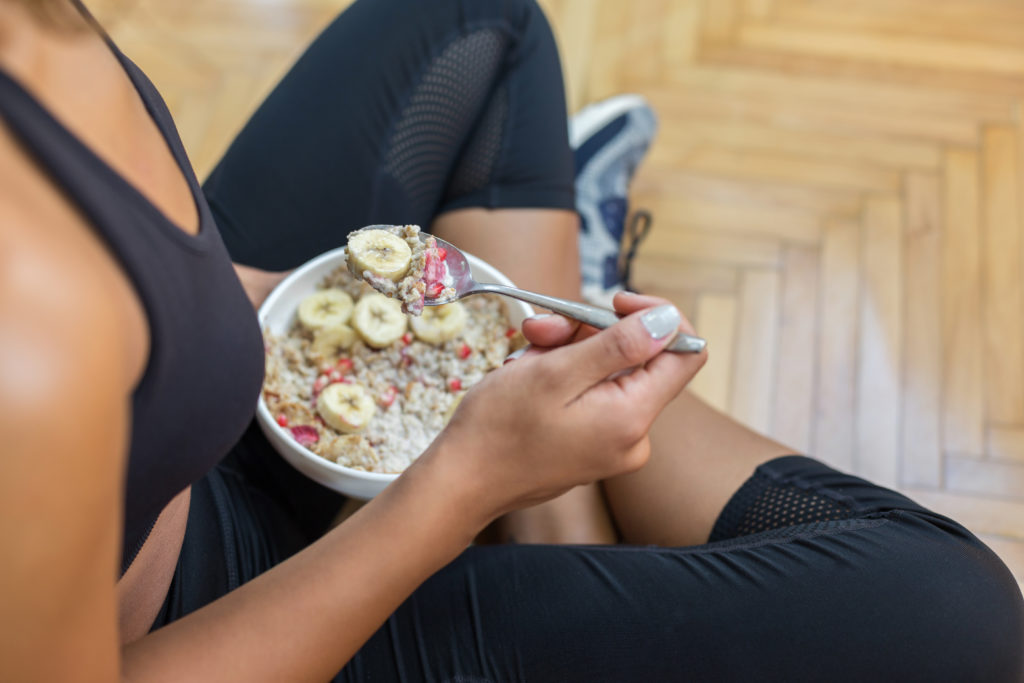
Retail & Registration
Open-themed shirts, protein and gear are in high demand come Intramural Open time. At the very minimum, have Forever Fierce design shirts for you to sell to your members.
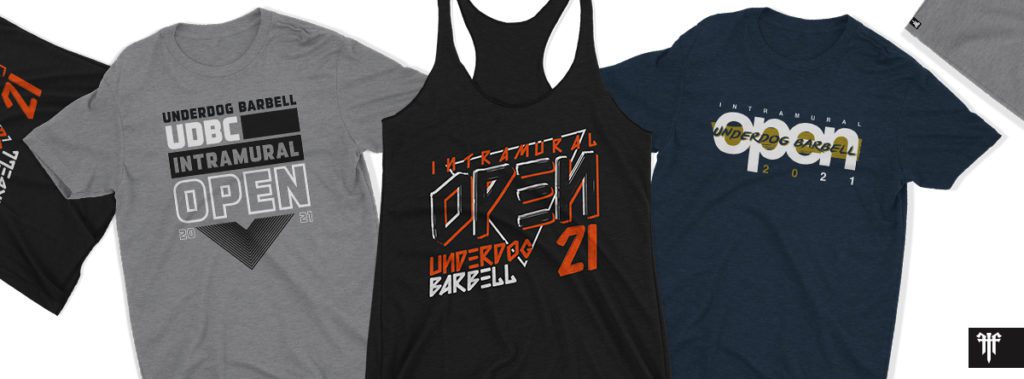
Jason Rule at Driven Nutrition can help you put together and market the perfect supplement packages.
Registration Fees
Registration fees are a straightforward way to generate revenue during the Intramural Open.
Caution: We have seen blowback when gyms include the price of a shirt and charge in excess of $50. Our recommendation is to sell retail separately from registration!
Point-Incentivized Activities
During the Open, points become an amazing currency. Use them to generate revenue and marketing material.
- Earn 2 points by scheduling a skill session.
- Earn a point by leaving a review on Google or Facebook.
- Submit a testimonial video about how the gym has changed your life—1 point for a submission, 3 for the best one.
- Check in to the gym for an entry into a random drawing each week for 3 points.
And so on. Think of creative ways to encourage members to help your business as they help their teams.
Do a Kids WOD Heat During the Open
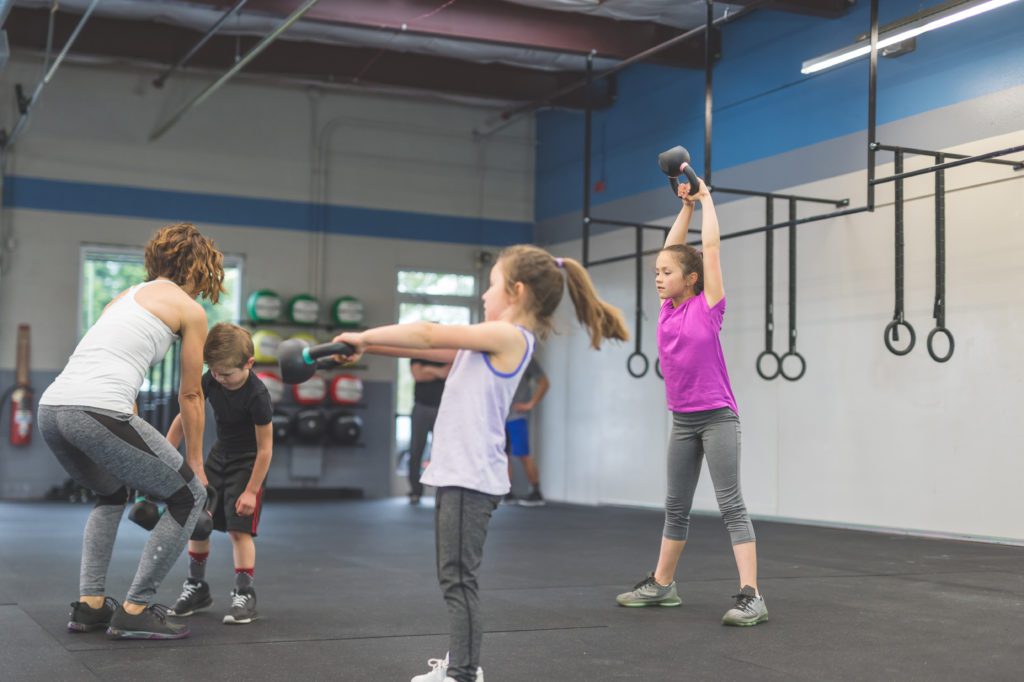
In 2019, Catalyst had three kids heats for different ages so children could be just like mom and dad. At the end, each child received a medal and certificate. All of this was completely free, but the gym was tagged more in social media than ever before as a result. Catalyst generated its largest kids program revenue the month after—not a coincidence.
Post-Open Goal Setting and Prescription
Athletes always tend to have stronger connections to their failures than their successes. Sally will remember Joan beat her because she messed up on her double-unders but will overlook the fact she won a different WOD. Once again, that’s your time to help.
While memories of the Open are fresh, have clients schedule a goal-setting session (offer a point during the Open for each booking). Help them set a goal and give them what they need to get there (personal training, accessory plan, etc.).
Section 3—Elevating and Freshening up Your Intramural Open
Thousands of you around the world have experience running Intramural Opens, so your members have seen them before. How do you keep the event fresh or take it to the next level?
The options are endless, but here are some ideas.
Tweak Some of the Basics
Small adjustments can add a completely new flavor to the Intramural Open:
- Number of teams—Change the number of teams or spread apart your most talented athletes. This can help make it more competitive overall.
- Divisions—If the same athletes are always the top three in your divisions, think about splitting up the divisions. Example: Have men’s and women’s divisions for athletes with less than two years of experience and men’s and women’s divisions for athletes with more than two years.
- Number of team captains—Catalyst started with one captain per team but quickly moved to two. Now, every team has two cheerleaders and organizers, which has major benefits.
- Points: Use points to get the behavior you want. If your lower athletes aren’t submitting scores, then weight participation higher.
- During the COVID Crisis, regulations might force you to adapt and try new things—like outdoor workouts, online workouts and so on. Even if the regulations aren’t ideal for you, find a way to put a positive spin on things and present your plan with enthusiasm: “This year we get to do burpees outside in the snow—who’s going to join me in the first ‘heat’?”
Draft Everyone
Instead of drafting only those who register, draft every single member in the gym! This has worked wonders for some.
Now instead of recruiting people by asking them to join your team, you’re
asking them to join your team because they’re already on it. Talk about
increased peer pressure!
Involve the Kids
We already mentioned the kids’ heats for one of the WODs, but kids are worth bringing up again. It’s an extraordinary moment when your members and their kids can share something at your gym. It will be a highlight of everyone’s Open. Find a way to get young ones involved!
Section 4—Elevate Your Clients and Showcase Your Business
When CrossFit was producing media, it did a great job of
creating superstar athletes. You can use that template to do the same thing at your gym and make your clients feel like stars!
Focus on the Podiums
Events are a great way to keep the energy high, but so are the “podiums” you create around those events.
At Catalyst, the “impact awards” are always incredible. Each week, members can nominate an athlete who inspired them. Each nomination is printed and posted on the board for everyone to see. This usually creates huge amounts of tears, hugs and smiles.
Other examples:
- Build up to WOD announcements, interview athletes on video after each workout, and share the interviews throughout the week. Talk about point spreads with “expert commentary.” If you see something done on the Games site, you can do it, too: client stories, interviews, commentary.
- Copy HQ: do a weekly “Open Review” show where your goal is to name as many athletes as possible. Do it live on Facebook Live or record it to share on YouTube.
- Tag your photos with your gym name, #crossfitopen, #intramuralopen, #twobrain, #twobrainbusiness and #twobrainboxes (so we can share your gym’s pics!).
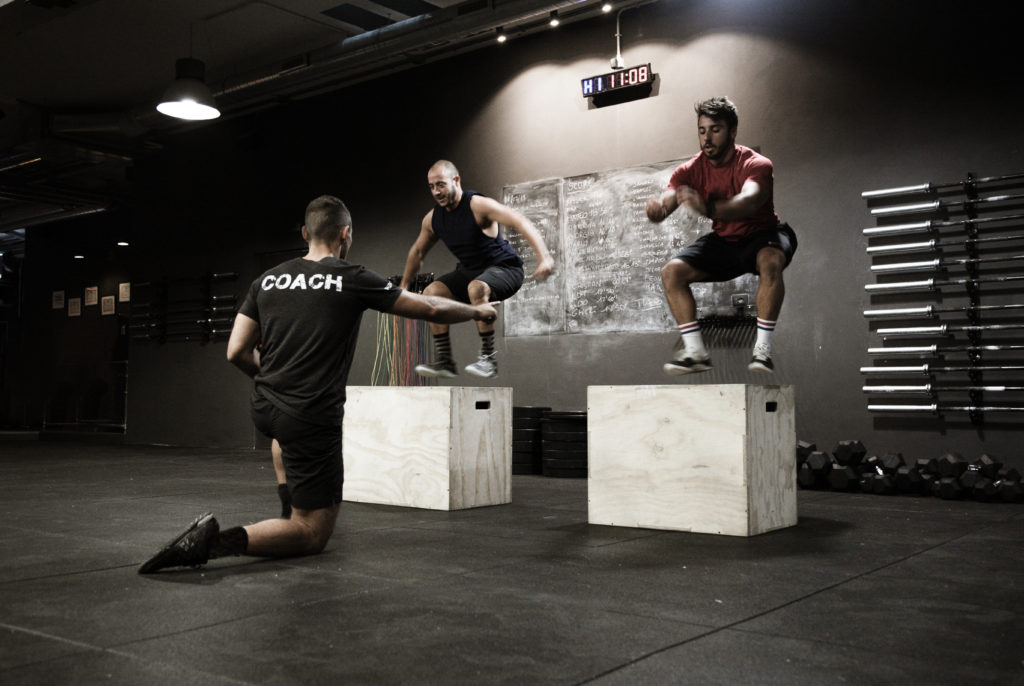
More Media
By Mike Warkentin, Two-Brain Media
When I consult with gym owners about social media, I regularly hear that they have trouble coming up with great content for consistent posting. The Intramural Open is the cure. Without exaggeration, you can generate months of content from just five competition nights.
Consider the Intramural Open a “media sprint.” You’ll be able to pump out large amounts of great media during the event, and you can archive unused assets for later. If you plan ahead to create media during the Intramural Open, you’ll never again have to scrounge for pictures to post on Facebook, Instagram and your website.
Think about it: During the competition, you have large groups of happy clients in the same place at the same time—though COVID might limit gathering size to a degree in 2021. Morning crews often mix with evening crews, Tuesday-Thursday members show up on Fridays, and so on. Even better, you’re throwing them all into a fun atmosphere and encouraging participation and spirit. The media possibilities are endless.
Beyond all that: You have an opportunity to elevate and celebrate your clients (as described above). Media during the Open is an extension of retention: You’re creating and documenting Bright Spots, and you’re celebrating the accomplishments and character of the special people in your community.
At minimum, we recommend you post one Open-themed picture or video per day during the event. Use the platforms you have, and remember that one piece of media can go in lots of places. Be sure to tag the clients you post about so they can feel the love and share the media in their own circles. In fact, you can even award points to people who share your posts or make their own posts with a certain hashtag—“#mygymrules,” for example. Getting members to make posts is a great way to create content because you can simply share their posts on your platforms.
All it takes to get a stockpile of Intramural Open media is one person with a camera—even a mobile phone. He or she just spends 30 minutes walking around and taking a picture of everyone in the gym. This person does not have to be a pro. He or she just needs to know how to take an in-focus picture or video. Struggling to get someone on the camera? Find a member’s kid who’s really into social media and pay him or her to make magic.
You can, of course, take workout shots, but you should also encourage smiles, high fives (if allowed), tomfoolery and other elements that showcase the happy atmosphere. Even better: Many Intramural Opens feature costumes and themes, which will make for some standout photos you can use in marketing: “What is that smiling masked super hero doing with that dumbbell? I need to click this link to find out.”
You should also take team photos each week to capture the spirit. Huge groups of smiling people are always a hit. If you have to, space them out appropriately to stay onside of COVID regulations.
You can also post photos of top scorers, best costumes, spirit award winners, people who hit a PR, and anything else that would make a client feel great.
Here are several other ideas:
- Get a cheap mic and interview clients after workouts, when they’re happy and sweaty. Ask them why they train and why they love the gym. What would they say to someone who’s thinking about starting a fitness program? People say amazing things in that wonderful state of post-workout euphoria. Don’t let it slip away.
- Set up a “photo booth” and have people pose for pictures. A few years back, I hung a backdrop, set up a few lights, mounted a camera on a tripod and had everyone pose for before and after photos, which I used to create a great video. You can do this with a more involved set-up or just by leaving a camera on a plyo box and telling people to photograph each other after the workout.
- If restrictions force you to run the Open outside, in parks or even online, tell that story—and contact local media outlets to let them know how you’re finding clever ways to keep people moving according to regulations.
- Ask for photos and videos of members who are training in their garages and celebrate their commitment. Make them feel like they’re part of the gym community even if they’re not physically present.
- Talk to a local photographer or videographer and see what it might cost for him or her to spend a few hours at your gym with a camera. You can have staff or members take pics, but sometimes hiring a pro is well worth it—especially if the assets can be used to acquire new members. (If you go this route, make sure the deal with the photographer/videographer states that you can use the images/videos however you like as many times as you like—even in ads. If the person tries to place limits on what you can do with the assets, find someone else.)
- Stream the fun live to Facebook and Instagram. In previous years, my wife and I often dressed up as rock stars and badly but comically performed original songs with an Intramural Open theme. We’d stream the shenanigans and show viewers that fitness isn’t just about hard workouts. You can, of course, stream parts of the workouts. Just be sure not to show only shredded, tattooed beasts who are bleeding and vomiting between sets. Show average people doing amazing things so viewers think, “Maybe I could do that, too!”
A COVID note: Be sure your pictures and videos show that you are adhering to all local guidelines and restrictions. It would be a mistake to post pictures of group hugs if social distancing is required at present. If anything, take extra steps to show that you are having fun while going above and beyond when it comes to the health and safety of your members. If you reuse photos from other years, you might mention that they were taken before COVID so people don’t assume you’re breaking the rules.
We’ve seen some incredibly creative media come out of Two-Brain gyms during the Open, and we know it’s 100 percent worth your time to have a camera rolling whenever possible. You’ll be able to make stars of your clients and generate great content for your business at the same time.
Whatever you do, make sure you take advantage of this chance to create all the media you’ll need for months!
The Open and SEO Strategies
By John Franklin, Gym Lead Machine
Each year in February, search interest for the “CrossFit Open” increases about 60x. If you’re prepared, your gym can capitalize on this change in search behavior.
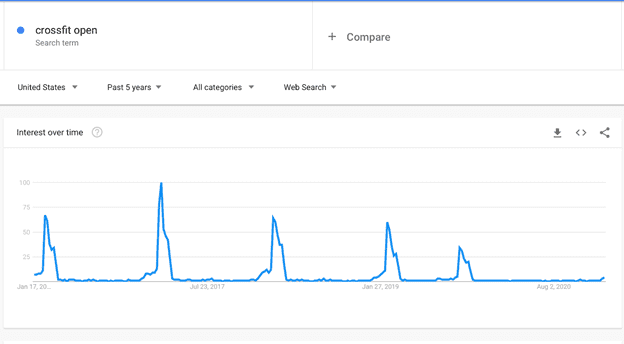
While you probably won’t rank on the first page on Google for “CrossFit Open,” there are opportunities to rank for “long-tail keywords”—more specific keyword phrases people put into Google.
Example:
Broad: CrossFit
Long-tail: Best CrossFit gym in southern Chicago
It’s typically easier to rank for long-tail keywords because there is less competition.
Using this knowledge, your mission is to find some relevant long-tail keywords that prospective customers are searching for during the CrossFit Open.
Let’s say you own a CrossFit gym in Houston. When I search for “CrossFit Open Houston,” here are some of the results that show up on the first page:
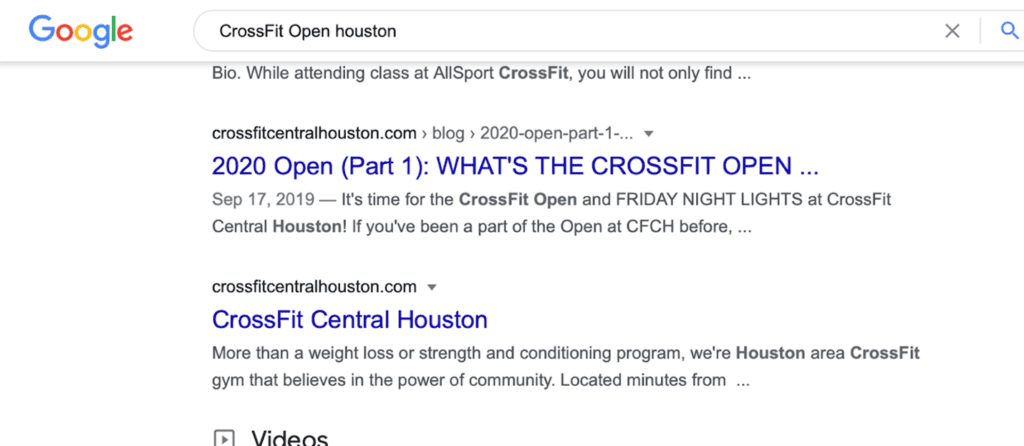
This affiliate is taking up two of the top 10 spots. One spot is pushing to a blog he made for his members that explains what the CrossFit Open is and who should compete in it.
There probably aren’t a lot of Houston businesses blogging about the CrossFit Open, so this post signals to Google that these guys are an authority on this topic. Because of this, Google is also ranking this affiliate’s homepage on the first page of results.
That’s a lot of exposure and potential traffic for a blog post that probably took an hour to write.
If you want to follow a similar model for your gym, here’s a quick outline you can use:
Blog title: “The Ultimate Guide to the 2021 CrossFit Open in TOWN, CITY”
- Introduction.
- What it is.
- Who competes.
- How competing will benefit the reader.
- Why your gym is the best place in CITY, STATE to participate in the CrossFit Open.
- When the workouts are done.
- Where you do the workouts.
- What it costs.
- How to sign up.
- What to do if you’re dropping in from out of town.
- Links to a few helpful resources.
Remember, this doesn’t have to be a work of art! Most box owners aren’t going to take the time to do this. Just by publishing something, you’re putting yourself in a position to rank well.
Section 5—Survival Tips
Energy is your currency during the Open. And sometimes we run out.
On the following pages, you’ll find strategies for ensuring you and your staff survive the Open and are ready to get back into regularly scheduled programming when it ends.
Plan to Share the Load
At Catalyst, coaches volunteer to judge, score and hype the Intramural Open. Some lead teams. All show up to cheer on the athletes even when they’re not “working.” Everyone at Catalyst spends a lot more time in the gym during the Open.
So when the Open ends, athletes are usually thrilled but tired—and coaches are exhausted. That means it takes more effort to bring their energy to regular class times again. Here’s how we help avoid coach burnout during the five or six long weeks:
- Schedule extra time off for coaches during the Open. Bring in your backups. Don’t let anyone volunteer for every possible extra heat. Give them an extra weekend off on a rotating basis.
- Get as many judges as possible. Offer to pay for members who want to take the Judges Course (or even pay their Open entry fees and their Judges Course fees).
- Set up a heat schedule on your whiteboard. List your judges in attendance and open the same number of spots in each heat. Have people write their names under each heat on a first-come, first-served basis.
- Standardize your warm-up. Usually, a coach should lead every second of every class. But the Open is competition, not training. Have athletes perform a standardized warm-up on their own so they can arrive when they want to instead of sitting around for an hour before their heats.
- Designate a spouse or staff member to supply the coaches with coffee and food.
- Buy your staff breakfast before and after the Open. Think of it as “thanks in advance!” and “thank you very much!” At Catalyst, one rule was that any coach who judged a heat on Friday had his or her next meal covered at the café next to the gym. The café simply ran a tab. And if you plan the Open to generate revenue, these extra costs can be covered.
- Delegate the hype. The Intramural Open means your clients will handle a lot of the energy generation, leaving the coaches free to organize and manage. Owners still get really wrapped up in the energy and yell more than normal, but they don’t have to energize cold people during the Open. They’re already on the verge of exuberance. Let the other clients push them over the edge. Adding a “spirit of the Open” prize will really help.
- Skip one day each week yourself. Many owners remember working 35-42 consecutive days during the Open for the first few years. That takes an emotional toll—and a toll on your relationships outside the gym. If you do the Open right (heck, if you do business right), you don’t have to be there. Your members should have the same excellent experience when you’re not in the room. The Open is a great time to test your systems!
The Open is fun, but it’s not everything. Your business is not built on the back of competition (we hope). Done well, it can be the cherry on top of your service sundae.
But if the Open doesn’t make you money, doesn’t improve adherence or retention in a measurable way and just wears you out, you can skip it. It’s not your duty to do the Open at your gym.
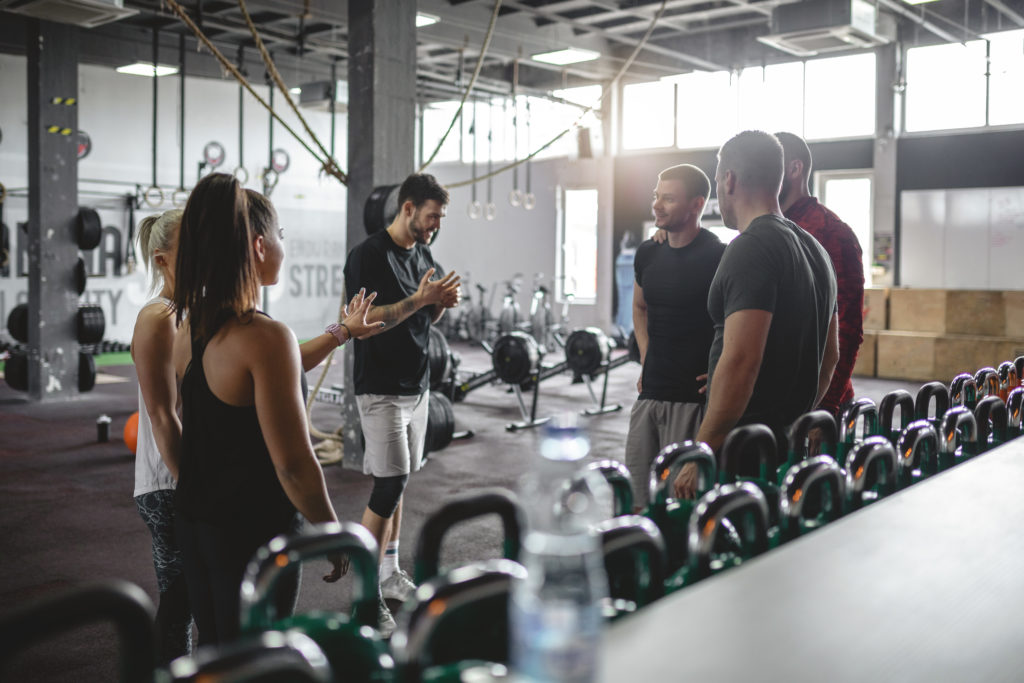
Final Note
You Deserve to Thrive!
We give this guide away for free every year.
We do this to help you, the gym owner, capitalize on CrossFit HQ’s largest marketing push of the year. We don’t do it to provide an alternative to doing the Open.
Make a solid plan, stock up on coffee and enjoy every second of it.
Thank you for continuing to change the world, one bright shining life at a time.
Coop
